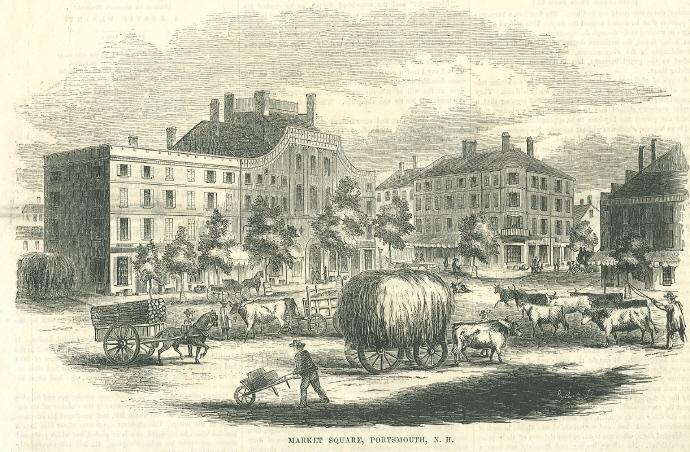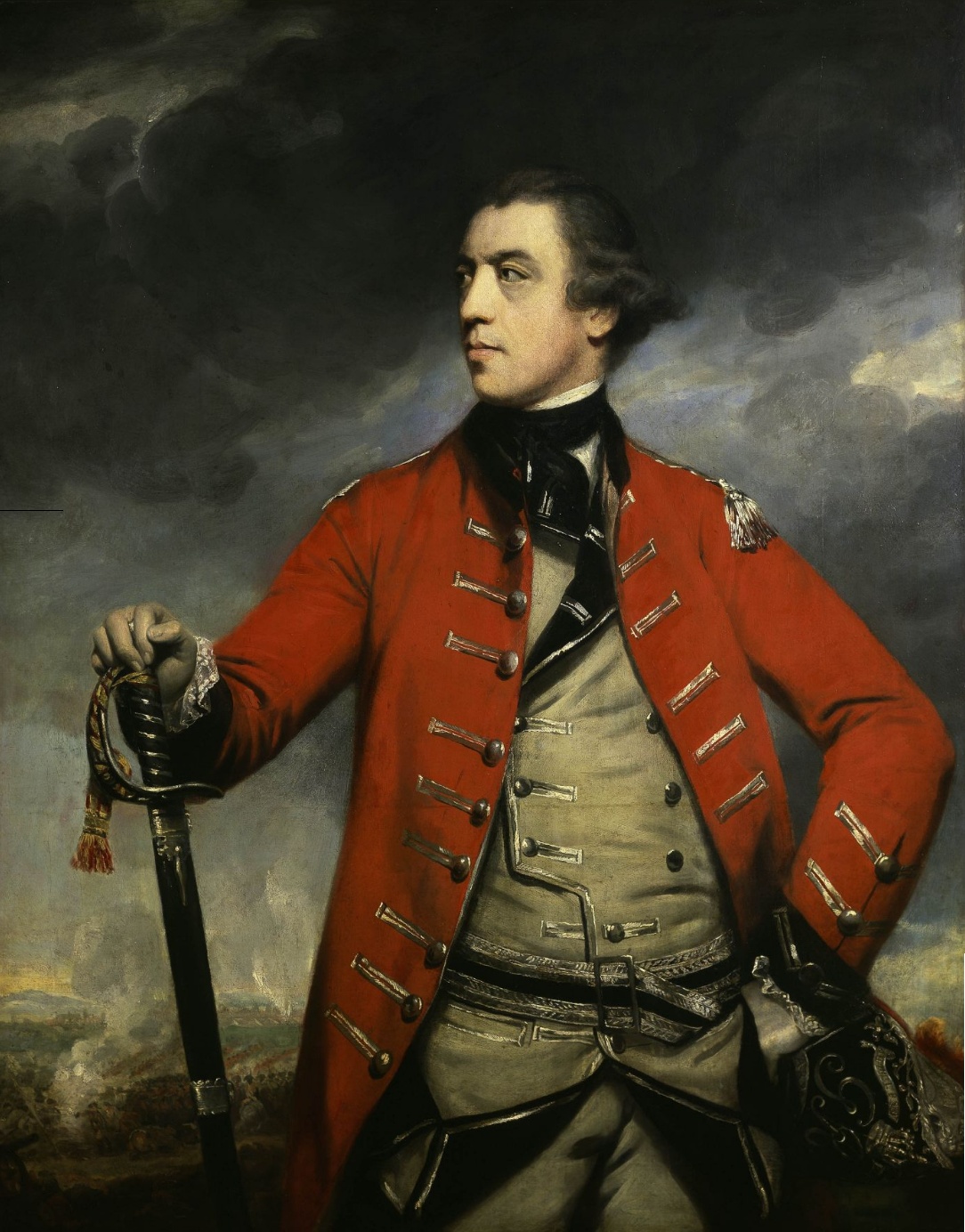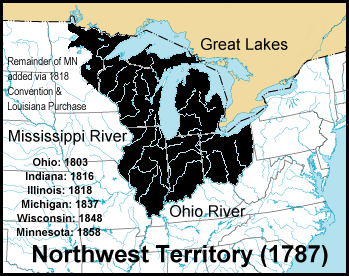|
Pierse Long
Pierse Long (1739 – April 13, 1789) was an American merchant from Portsmouth, New Hampshire. He served as a colonel of the Continental Army in the Revolutionary War and served as a New Hampshire delegate to the Confederation Congress in 1785 and 1786. Pierse was the son of an Irish immigrant (also Pierse) who had originally traded with Portsmouth merchants from Ireland. Around 1730, he moved to Portsmouth to open a store. In Portsmouth, Pierse Sr. married and had two daughters and a son, Pierse, who was born in 1739. He died only a year or two later. Young Pierse received a limited education, then was apprenticed to another merchant, Robert Trail. After his apprenticeship, Pierse became a merchant in his own right, exporting timber to the West Indies and importing goods from England and Ireland. He prospered in business and became active in the militia and in civic affairs. As the Revolution neared, he became a member of Portsmouth's Committee of Safety. In 1774, he par ... [...More Info...] [...Related Items...] OR: [Wikipedia] [Google] [Baidu] |
Portsmouth, New Hampshire
Portsmouth is a city in Rockingham County, New Hampshire, United States. At the 2020 census it had a population of 21,956. A historic seaport and popular summer tourist destination on the Piscataqua River bordering the state of Maine, Portsmouth was formerly the home of the Strategic Air Command's Pease Air Force Base, since converted to Portsmouth International Airport at Pease. History American Indians of the Abenaki and other Algonquian languages-speaking nations, and their predecessors, inhabited the territory of coastal New Hampshire for thousands of years before European contact. The first known European to explore and write about the area was Martin Pring in 1603. The Piscataqua River is a tidal estuary with a swift current, but forms a good natural harbor. The west bank of the harbor was settled by European colonists in 1630 and named Strawbery Banke, after the many wild strawberries growing there. The village was protected by Fort William and Mary on what is now ... [...More Info...] [...Related Items...] OR: [Wikipedia] [Google] [Baidu] |
Saratoga Campaign
The Saratoga campaign in 1777 was an attempt by the British high command for North America to gain military control of the strategically important Hudson River valley during the American Revolutionary War. It ended in the surrender of the British army, which historian Edmund Morgan argues, "was a great turning point of the war, because it won for Americans the foreign assistance which was the last element needed for victory." The primary thrust of the campaign was planned and initiated by General John Burgoyne. Commanding a main force of some 8,000 men, he moved south in June from Quebec, boated south on Lake Champlain to Fort Ticonderoga and from there boated south on Lake George, then marched down the Hudson Valley to Saratoga. He initially skirmished there with the Patriot defenders with mixed results. The turning point of the campaign happened in August at the Battle of Bennington when militia forces from Vermont, New Hampshire, and Massachusetts defeated, killed, and capt ... [...More Info...] [...Related Items...] OR: [Wikipedia] [Google] [Baidu] |
People Of New Hampshire In The American Revolution
A person ( : people) is a being that has certain capacities or attributes such as reason, morality, consciousness or self-consciousness, and being a part of a culturally established form of social relations such as kinship, ownership of property, or legal responsibility. The defining features of personhood and, consequently, what makes a person count as a person, differ widely among cultures and contexts. In addition to the question of personhood, of what makes a being count as a person to begin with, there are further questions about personal identity and self: both about what makes any particular person that particular person instead of another, and about what makes a person at one time the same person as they were or will be at another time despite any intervening changes. The plural form "people" is often used to refer to an entire nation or ethnic group (as in "a people"), and this was the original meaning of the word; it subsequently acquired its use as a plural form of pe ... [...More Info...] [...Related Items...] OR: [Wikipedia] [Google] [Baidu] |
18th-century American Politicians
The 18th century lasted from January 1, 1701 ( MDCCI) to December 31, 1800 ( MDCCC). During the 18th century, elements of Enlightenment thinking culminated in the American, French, and Haitian Revolutions. During the century, slave trading and human trafficking expanded across the shores of the Atlantic, while declining in Russia, China, and Korea. Revolutions began to challenge the legitimacy of monarchical and aristocratic power structures, including the structures and beliefs that supported slavery. The Industrial Revolution began during mid-century, leading to radical changes in human society and the environment. Western historians have occasionally defined the 18th century otherwise for the purposes of their work. For example, the "short" 18th century may be defined as 1715–1789, denoting the period of time between the death of Louis XIV of France and the start of the French Revolution, with an emphasis on directly interconnected events. To historians who expand ... [...More Info...] [...Related Items...] OR: [Wikipedia] [Google] [Baidu] |
Continental Congressmen From New Hampshire
Continental may refer to: Places * Continent, the major landmasses of Earth * Continental, Arizona, a small community in Pima County, Arizona, US * Continental, Ohio, a small town in Putnam County, US Arts and entertainment * ''Continental'' (album), an album by Saint Etienne * Continental (card game), a rummy-style card game * ''Continental'' (film), a 2013 film * Continental Singers, a Christian music organization Companies * Continental AG, a German automotive parts and technologies manufacturer * Continental Airlines, a former American airline * Continental Electronics, an American radio transmitter manufacturer * Continental Films, a German-controlled French film company during the Nazi occupation of France * Continental Illinois, a defunct large bank * Continental Mortgage and Loan Company (later known as Continental, Inc.), the former name of HomeStreet Bank * Continental Motors, Inc., a Chinese manufacturer of aircraft engines * Continental Records, a former American re ... [...More Info...] [...Related Items...] OR: [Wikipedia] [Google] [Baidu] |
1789 Deaths
Events January–March * January – Emmanuel Joseph Sieyès publishes the pamphlet '' What Is the Third Estate?'' ('), influential on the French Revolution. * January 7 – The 1788-89 United States presidential election and House of Representatives elections are held. * January 9 – Treaty of Fort Harmar: The terms of the Treaty of Fort Stanwix (1784) and the Treaty of Fort McIntosh, between the United States Government and certain native American tribes, are reaffirmed, with some minor changes. * January 21 – The first American novel, '' The Power of Sympathy or the Triumph of Nature Founded in Truth'', is printed in Boston, Massachusetts. The anonymous author is William Hill Brown. * January 23 – Georgetown University is founded in Georgetown, Maryland (today part of Washington, D.C.), as the first Roman Catholic college in the United States. * January 29 – In Vietnam, Emperor Quang Trung crushes the Chinese Qing forces in N ... [...More Info...] [...Related Items...] OR: [Wikipedia] [Google] [Baidu] |
1739 Births
Events January–March * January 1 – Bouvet Island is discovered by French explorer Jean-Baptiste Charles Bouvet de Lozier, in the South Atlantic Ocean. * January 3: A 7.6 earthquake shakes the Ningxia Hui Autonomous Region in China killing 50,000 people. * February 24 – Battle of Karnal: The army of Iranian ruler Nader Shah defeats the forces of the Mughal emperor of India, Muhammad Shah. * March 20 – Nader Shah occupies Delhi, India and sacks the city, stealing the jewels of the Peacock Throne, including the Koh-i-Noor. April–June * April 7 – English highwayman Dick Turpin is executed by hanging for horse theft. * May 12 – John Wesley lays the foundation stone of the New Room, Bristol in England, the world's first Methodist meeting house. * June 13 – (June 2 Old Style); The Royal Swedish Academy of Sciences is founded in Stockholm, Sweden. July–September * July 9 – The first group purporting ... [...More Info...] [...Related Items...] OR: [Wikipedia] [Google] [Baidu] |
United States Constitution
The Constitution of the United States is the Supremacy Clause, supreme law of the United States, United States of America. It superseded the Articles of Confederation, the nation's first constitution, in 1789. Originally comprising seven articles, it delineates the national frame of government. Its first three articles embody the doctrine of the separation of powers, whereby the federal government of the United States, federal government is divided into three branches: the United States Congress, legislative, consisting of the bicameralism, bicameral United States Congress, Congress (Article One of the United States Constitution, Article I); the Federal government of the United States#Executive branch, executive, consisting of the President of the United States, president and subordinate officers (Article Two of the United States Constitution, Article II); and the Federal judiciary of the United States, judicial, consisting of the Supreme Court of the United States, Supreme C ... [...More Info...] [...Related Items...] OR: [Wikipedia] [Google] [Baidu] |
Northwest Ordinance
The Northwest Ordinance (formally An Ordinance for the Government of the Territory of the United States, North-West of the River Ohio and also known as the Ordinance of 1787), enacted July 13, 1787, was an organic act of the Congress of the Confederation of the United States. It created the Northwest Territory, the new nation's first organized incorporated territory, from lands beyond the Appalachian Mountains, between British North America and the Great Lakes to the north and the Ohio River to the south. The upper Mississippi River formed the territory's western boundary. Pennsylvania was the eastern boundary. In the 1783 Treaty of Paris, which formally ended the American Revolutionary War, Great Britain yielded the region to the United States. However, the Confederation Congress faced numerous problems gaining control of the land such as the unsanctioned movement of American settlers into the Ohio Valley; violent confrontations with the region's indigenous peoples; the on ... [...More Info...] [...Related Items...] OR: [Wikipedia] [Google] [Baidu] |
Enoch Poor
Enoch Poor (June 21, 1736 (Old Style) – September 8, 1780) was a brigadier general in the Continental Army during the American Revolutionary War. He was a ship builder and merchant from Exeter, New Hampshire. Biography Poor was born and raised in Andover, Massachusetts. His father Thomas Poor had been part of the 1745 expedition that captured Louisburg, Nova Scotia, during King George's War. In 1755, Poor enlisted as a private in one of the Massachusetts units raised to accompany Jeffery Amherst's expedition to retake Louisburg during the French and Indian War. His unit enforced the expulsion of the Acadians. After the war, he came home to Andover, but only briefly. He eloped with Martha Osgood, and they settled in Exeter where he became a successful ship builder. Poor supported the separatists as early as the Stamp Act protests in 1765. He served on various committees for Exeter throughout the period of rising rebellion. In 1775, he was twice elected to the provincial Assembl ... [...More Info...] [...Related Items...] OR: [Wikipedia] [Google] [Baidu] |
Battle Of Saratoga
The Battles of Saratoga (September 19 and October 7, 1777) marked the climax of the Saratoga campaign, giving a decisive victory to the Americans over the British in the American Revolutionary War. British General John Burgoyne led an invasion army of 7,200–8,000 men southward from Canada in the Champlain Valley, hoping to meet a similar British force marching northward from New York City and another British force marching eastward from Lake Ontario; the goal was to take Albany, New York. The southern and western forces never arrived, and Burgoyne was surrounded by American forces in upstate New York short of his goal. He fought two battles which took place 18 days apart on the same ground south of Saratoga, New York. He gained a victory in the first battle despite being outnumbered, but lost the second battle after the Americans returned with an even larger force. Burgoyne found himself trapped by much larger American forces with no relief, so he retreated to Saratoga (now ... [...More Info...] [...Related Items...] OR: [Wikipedia] [Google] [Baidu] |
Battle Of Fort Ann
The Battle of Fort Anne, fought on July 8, 1777, was an engagement between Continental Army forces in retreat from Fort Ticonderoga and forward elements of John Burgoyne's much larger British army that had driven them from Ticonderoga, early in the Saratoga campaign of the American Revolutionary War. Burgoyne, surprised by the American withdrawal from Fort Ticonderoga, hurried as many of his troops as possible forward in pursuit of the retreating Americans. The main body of the American forces had departed Fort Independence down the road to Hubbardton, and a smaller body of troops, accompanying the sick, wounded, and camp followers that had also evacuated the fort, had sailed up Lake Champlain to Skenesboro, moving from there overland to Fort Edward. That group, which included about 600 men under arms, paused at Fort Anne, where a smaller advance company from Burgoyne's army caught up to them. The British, clearly outnumbered, sent for reinforcements. The Americans decid ... [...More Info...] [...Related Items...] OR: [Wikipedia] [Google] [Baidu] |


_1938.jpg)




